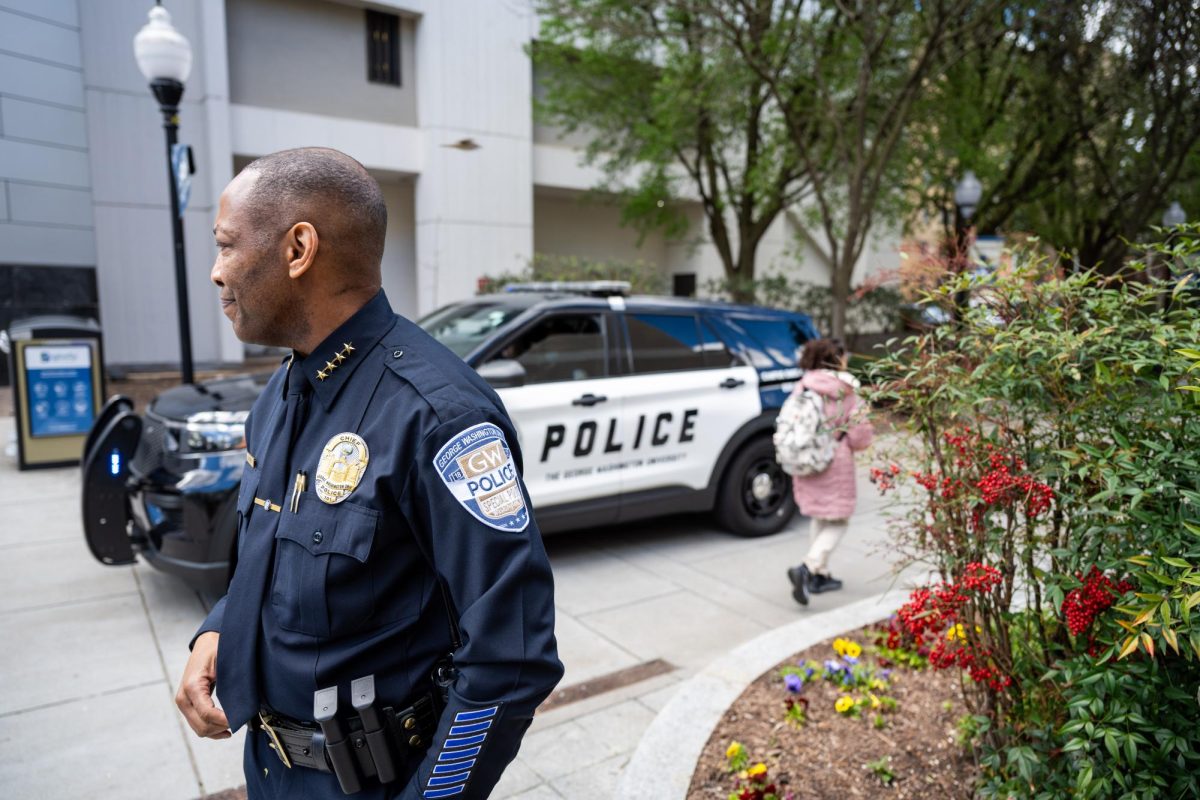
This post was written by Hatchet reporter Delaney Walsh.
Professors Steven Kelts and Donald Parsons faced off Thursday night, debating what the best fix for the nation’s economy is.
The pair sparred on issues regarding the Occupy Wall Street movement, financial regulations and tax policy at the College Democrats’ first professor versus professor debate.
Kelts, an assistant professor of political science, is a registered Democrat and favors liberal economic policies. Parsons, an economics professor who supports conservative economic policies, is a registered Republican.
The pair explained why the public’s top issues, like tax cuts and social programs, actually have little effect on jobs or growth because they make up small parts of the economy.
“Economists don’t know a lot about macro economies, and politicians even less,” Parsons said, explaining that even experts don’t have an easy solution for the world’s economic struggles.
Instead of debating political mechanisms like the Bush tax cuts and presidential contender Herman Cain’s 9-9-9 tax plan, the government should focus on the big issues like reforming the tax code, Parsons said.
Kelts agreed there is no quick fix. The Democrat said the government needs to focus on redistribution of capital gains, regulatory reform and revised state taxes.
“Most real political solutions don’t rhyme,” Kelts said, referring to the 9-9-9 plan.
Both Kelts and Parsons agreed that most Americans don’t know where their tax dollars are going. Parsons argued that there are too many congressional “pet projects,” which serve as “bizarre monuments to the ability to purchase politicians.”
He added that the Occupy Wall Street movement has emerged as a response to economic inequality, but the protesters themselves are educated people who decided to take up the cause of low-income Americans.
“It’s great to go out there and vent and camp out, but I don’t believe these are the actual oppressed rising,” Parsons said.




